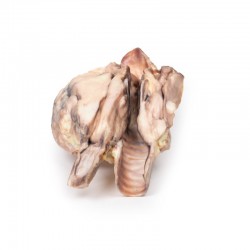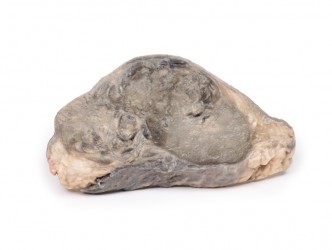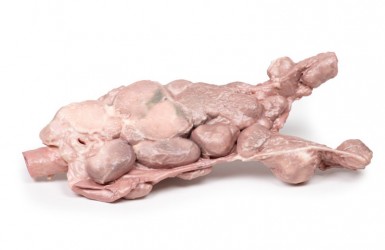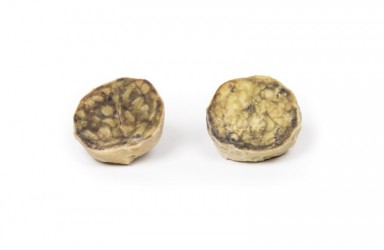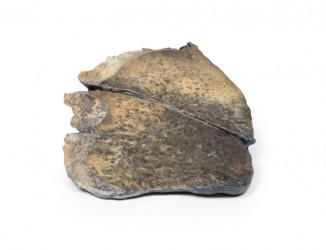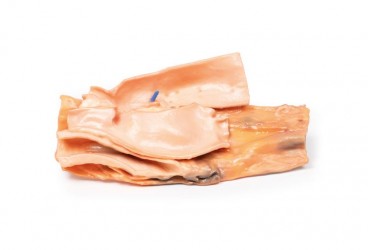Home / 3D anatomy models / 3D anatomical models of pathologies and diseases / Papillary Transitional Cell Carcinoma of the Renal Pelvis
Papillary Transitional Cell Carcinoma of the Renal Pelvis
Papillary Transitional Cell Carcinoma of the Renal Pelvis
 Download a PDF file Add to quotation - wish list
Download a PDF file Add to quotation - wish listProduct description: Papillary Transitional Cell Carcinoma of the Renal Pelvis

Clinical History
A 60 year old man who had worked in a paint factory for 40 years developed painless haematuria for one month. CT scan showed a suspected tumour in the left renal pelvis. He underwent a nephrectomy.
Pathology
This is the post-nephrectomy kidney. Of note the kidney maintains its foetal lobulation. There is a friable papillary tumour of 35mm in diameter projecting in the renal pelvis. The renal pelvis is visibly dilated due to this obstructing tumor. Histological examination revealed this is papillary transitional cell carcinoma arising in the renal pelvis.
Further Information
Between 5-10% of primary renal cancers arise in the urothelium lining the renal pelvis and calyces. These are similar to tumours which may arise in the ureter and urinary bladder. These tumours range from benign papillomas (rare) to well differentiated papillary carcinomas , which are common, and poorly differentiated tumours which can be either papillary, or flat and infiltrating. Symptoms of these renal pelvis tumors tend to occur early. Due to the friable nature of the tumours haematuria is common. As they tumours grow obstructive symptoms such as palpable hydronephrosis and flank pain can be noticed. The tumours can sometimes be multiple; involving the pelvis, ureter and bladder. There is an increased risk in developing urothelial tumours in individuals with Lynch syndrome and analgesic nephropathy. Smoking significantly increases the risk of developing urothelial tumours. Industrial chemicals called aromatic amines, such as benzidine and beta-naphthylamine, which are sometimes used in the dye industry, can lead to urothelial cancers. Infiltration of the wall of the pelvis and calyces is common in theses tumour. The prognosis with infiltration is not good. 5 year survival rates vary from 50-100% for low grade and non-invasive lesions to 10% for high grade infiltrating tumours.






